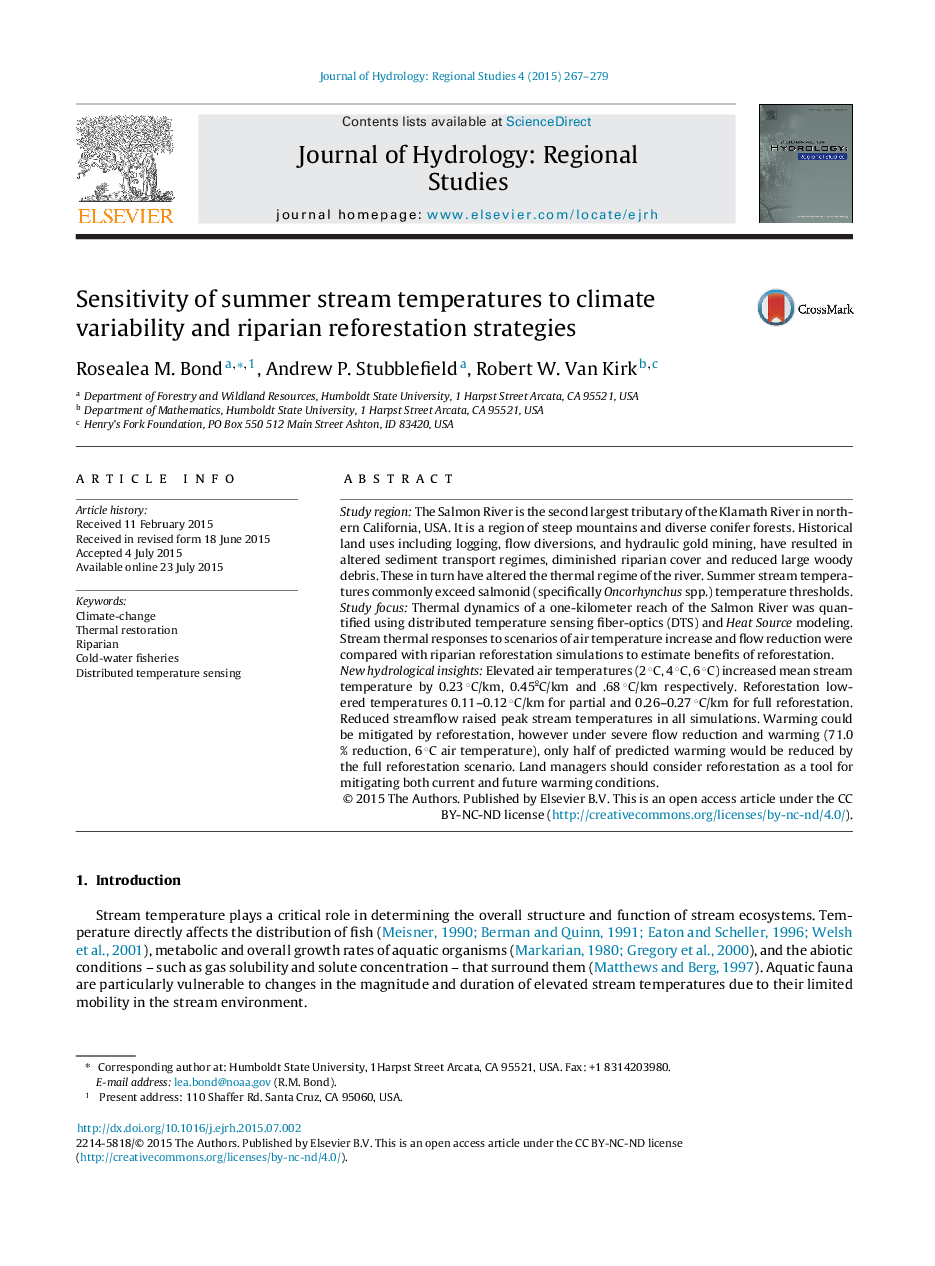| کد مقاله | کد نشریه | سال انتشار | مقاله انگلیسی | نسخه تمام متن |
|---|---|---|---|---|
| 4435106 | 1310546 | 2015 | 13 صفحه PDF | دانلود رایگان |
• The stream temperature model Heat Source was successfully calibrated with distributed temperature sensing fiber optics.
• Impacts of climate-change, simulated by increased air temperature and reduced flow, were compared to two riparian reforestation scenarios.
• Reforestation can mitigate moderate mean annual air temperature increases and flow reductions.
• Land managers should consider riparian reforestation as a tool for mitigating both current and future warming conditions.
Study regionThe Salmon River is the second largest tributary of the Klamath River in northern California, USA. It is a region of steep mountains and diverse conifer forests. Historical land uses including logging, flow diversions, and hydraulic gold mining, have resulted in altered sediment transport regimes, diminished riparian cover and reduced large woody debris. These in turn have altered the thermal regime of the river. Summer stream temperatures commonly exceed salmonid (specifically Oncorhynchus spp.) temperature thresholds.Study focusThermal dynamics of a one-kilometer reach of the Salmon River was quantified using distributed temperature sensing fiber-optics (DTS) and Heat Source modeling. Stream thermal responses to scenarios of air temperature increase and flow reduction were compared with riparian reforestation simulations to estimate benefits of reforestation.New hydrological insightsElevated air temperatures (2 °C, 4 °C, 6 °C) increased mean stream temperature by 0.23 °C/km, 0.45ºC/km and .68 °C/km respectively. Reforestation lowered temperatures 0.11–0.12 °C/km for partial and 0.26–0.27 °C/km for full reforestation. Reduced streamflow raised peak stream temperatures in all simulations. Warming could be mitigated by reforestation, however under severe flow reduction and warming (71.0 % reduction, 6 °C air temperature), only half of predicted warming would be reduced by the full reforestation scenario. Land managers should consider reforestation as a tool for mitigating both current and future warming conditions.
Journal: Journal of Hydrology: Regional Studies - Volume 4, Part B, September 2015, Pages 267–279
